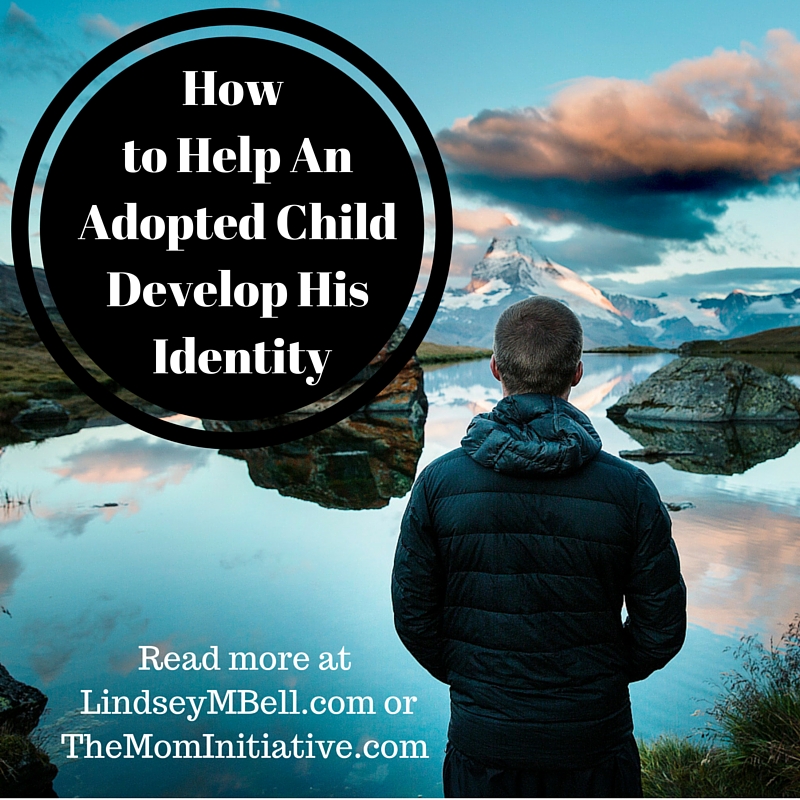Identities are important, aren’t they?
They’re important for us as adults, but they’re equally as important for our children.
I remember being a young child, probably about 10 or so, and waiting in line for an attraction on a family vacation. When my brothers and me got to the front of the line, an older gentleman said to us, “You three boys go on ahead.”
When he said that, I just stood there, assuming he was referring to my two brothers and my dad. But then he repeated himself.
And I got it. He thought I was a boy too.
Granted, I was wearing my hair in a pony tail, tucked underneath a hat. I had an oversized t-shirt on with athletic shorts. Nothing about me screamed GIRL, so looking back now, I completely understand his confusion.
But I was mortified nonetheless. He thought I looked like a boy.
For years (decades even!) I refused to wear a hat because of the fear that it made me look like a boy. My identity had been warped by the words of one man who meant no harm.
The truth is, identities are important for our children, and they can easily be warped by the words of others.
This is especially true with our adopted kiddos who could potentially face hurtful comments or questions about why they “look different” than the rest of their family or why they don’t know their medical history or biological family information.
We can’t ignore the question of identity…especially not with them.
We cannot afford to ignore the fact that our child is adopted or that his or her skin might be a different color than the rest of the faces in our home. We can’t ignore the fact that he or she might have begun his life in a foster home or in an orphanage.
These things are undeniable parts of their history, and our children needs to learn how to deal with their pasts.
Here are a few things we can do to help them wrap their identity around Christ instead of around the words of others or around their background.
How to Help An Adopted Child With His Or Her Identity:
- Support them.
We need to make it clear we are willing to talk about anything with our kids. No subject should be off limits. Race, history, birth family, reasons for adoption, culture of origin, etc. We need to be willing to talk about any and all of these things (age appropriately, of course) if our child would like to talk about them.
If your child is interested in learning about his or her culture of origin, one great way to support them is by learning with them and supporting their research.
We aren’t always going to be able to keep the past from hurting our kids. But we can help them learn from it. And we can support them as they try and figure it all out.
We can teach them they don’t have to fear their past. Some aspects of it might be painful, but they can learn from these painful things and grow into strong people.
- Educate them.
We need to educate our kids about 2 things: their past (like I talked about above) and their future.
One of our primary roles as parents to our adopted kids is to remind them that no matter what events are in their past, their past does not define them.
You cannot – no matter how much you try – change your child’s past. But you can help your child find God in the midst of the pain. You can help him find the good things that God has brought out of the hard.
Maurice Setter once said this: “Too many people miss the silver lining because they’re expecting gold.”
One huge way we can help our kids with their identities is by helping them find the silver lining in their individual situations.
That doesn’t mean we ignore the pains of the past.
What it does mean is that we help our child use his or her story for the good of others.
Our role as adoptive or foster parents is to educate our kids about their pasts and about how God wants to use them in their futures.
- Remind them WHO they are (WHOSE they are).
A third way – and probably the most important way we can help our kids with their identities – is to remind them WHO they are.
They are not orphans. They are not former foster kids. They are not unwanted or given up. They are children of the one true king.
I love what 1 John 3:1 says, “See what great love the Father has lavished on us, that we should be called children of God! And that is what we are!”
Their identity is in Christ, and it’s our job to help them remember that.
I love this quote by The Mom Initiative’s very own Stephanie Shott: “We may be broken by experience but we are healed by identity.”
Let’s chat: What other tips help you develop a positive identity in your adoptive child?
- How to Help Your Kids Think More about GIVING at Christmas Than GETTING - December 12, 2016
- Why Gratitude is Essential in Your Life - November 14, 2016
- Dark Chocolate Zucchini Brownie Recipe – Let’s Say Grace! - October 1, 2016



